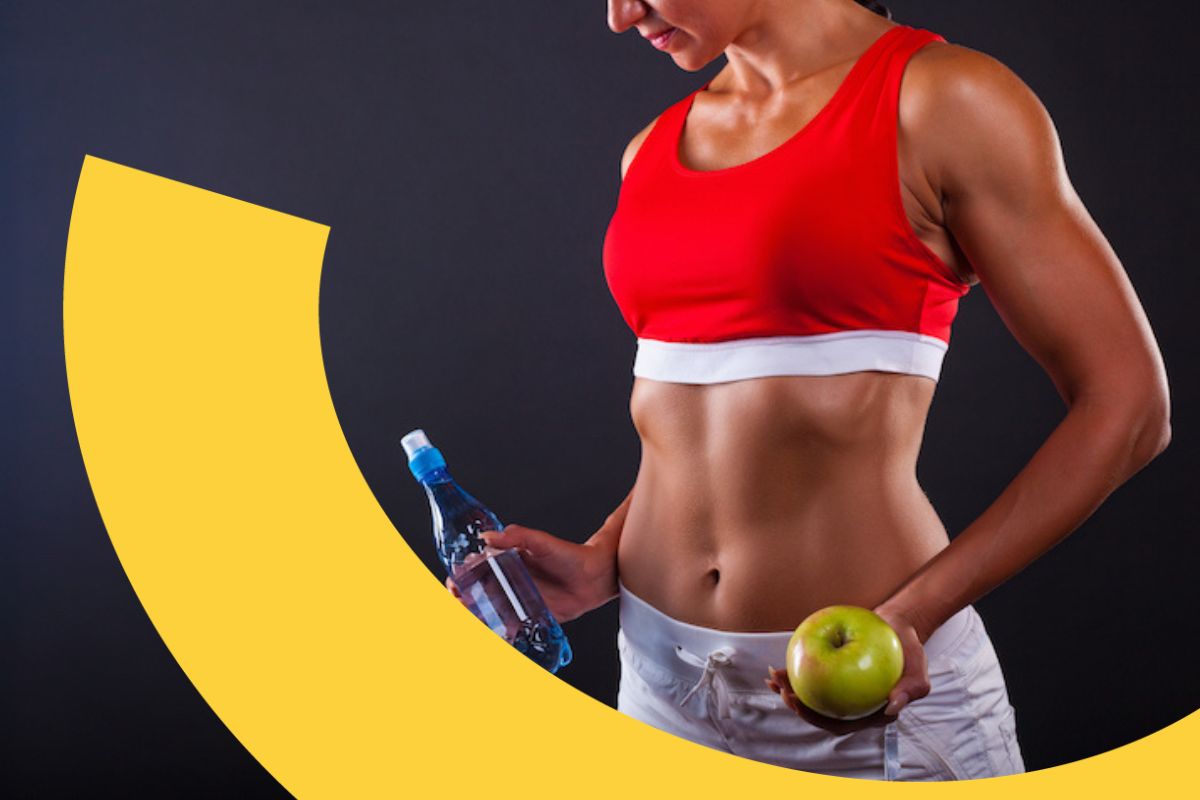The meals you have before and after exercising are the most important meals of your day.
First things first–focus on getting rid of nutrient deficiencies, making sure your portions are the proper size, and eating correctly for your body type and amount of physical activity. Carbohydrates are the most important foods to eat surrounding your exercise (before, during, and after) to maximize the maintenance of your blood glucose levels with moderate protein for support.
Before you workout, you want to eat something that will help to sustain you throughout your exercise, providing you with ample energy to support your workout’s intensity and duration. You’ll want food that helps to maintain energy, improve performance, hydrate, maintain muscle mass, and expedite recovery.
Carbohydrates
Low-moderate carbohydrates, especially low-glycemic foods, should make up about 75 percent of your pre-workout meal, in order to top off your glycogen and carbohydrate stores. Carbs are intended to fuel your workout and help with recovery. They maintain muscle and liver glycogen, helping to maximize muscle retention and growth. Carbohydrates also prompt the release of insulin, so when combined with protein, carbs improve protein synthesis and obstruct protein breakdown.
Proteins
Proteins should make up about 25 percent of your pre-workout meal, as they help to maintain or increase muscle size while reducing muscle damage. Proteins also saturate your bloodstream with amino acids, which boost muscle-building faculties.
Fats
Fats are not necessary for a pre-workout meal, but they can help slow digestion, which helps preserve blood glucose and insulin levels. Fats also, of course, impart some vitamins and minerals, which is always good.
Hydration
During exercise, your main goal should be to stay hydrated. However, you should also be sure not to drink in excess of your sweating rate. The only time you should really eat during a workout is if you’re working out for longer than two hours, in which case you should really just eat carbs and avoid fats.
Recovery
Our nutrition goals for the post-exercise meal is recovery, rehydration, refueling, building muscle, and improving subsequent performance. The main purpose of eating after exercise is to start your recovery and repair process as quickly as possible. Providing sufficient fluids, electrolytes, energy, and carbohydrates is important to restore muscle glycogen.
Your workout recovery should focus on supplying carbs to replenish glycogen stores as soon as possible, while also eating supporting proteins, which provide amino acids to aid in muscle repair and inflammation. Carbohydrates, after exercising, serve to replenish glycogen. Post-workout proteins prevent protein breakdown and triggers synthesis, which increases or maintains muscle tissue. Also, eating within a half hour after exercising is ideal to recoup your body. If you’re unable to eat so soon, make sure you eat within the next two to three hours.
In conclusion, the majority of the food you eat surrounding your exercise routine should be carbohydrates. To break it down, you should aim for a carb intake of about 0.5 to 0.7 grams to each pound of body weight. For example, a 150 pound person would want to consume about 100 grams of carbs within the first half an hour following their workout. This person should continue to consume 100 grams of carbohydrates every two hours for four to six hours in order to adequately replace their glycogen stores.
Remember, you have to eat healthy to get the results you really deserve and to get the most out of your workout.

